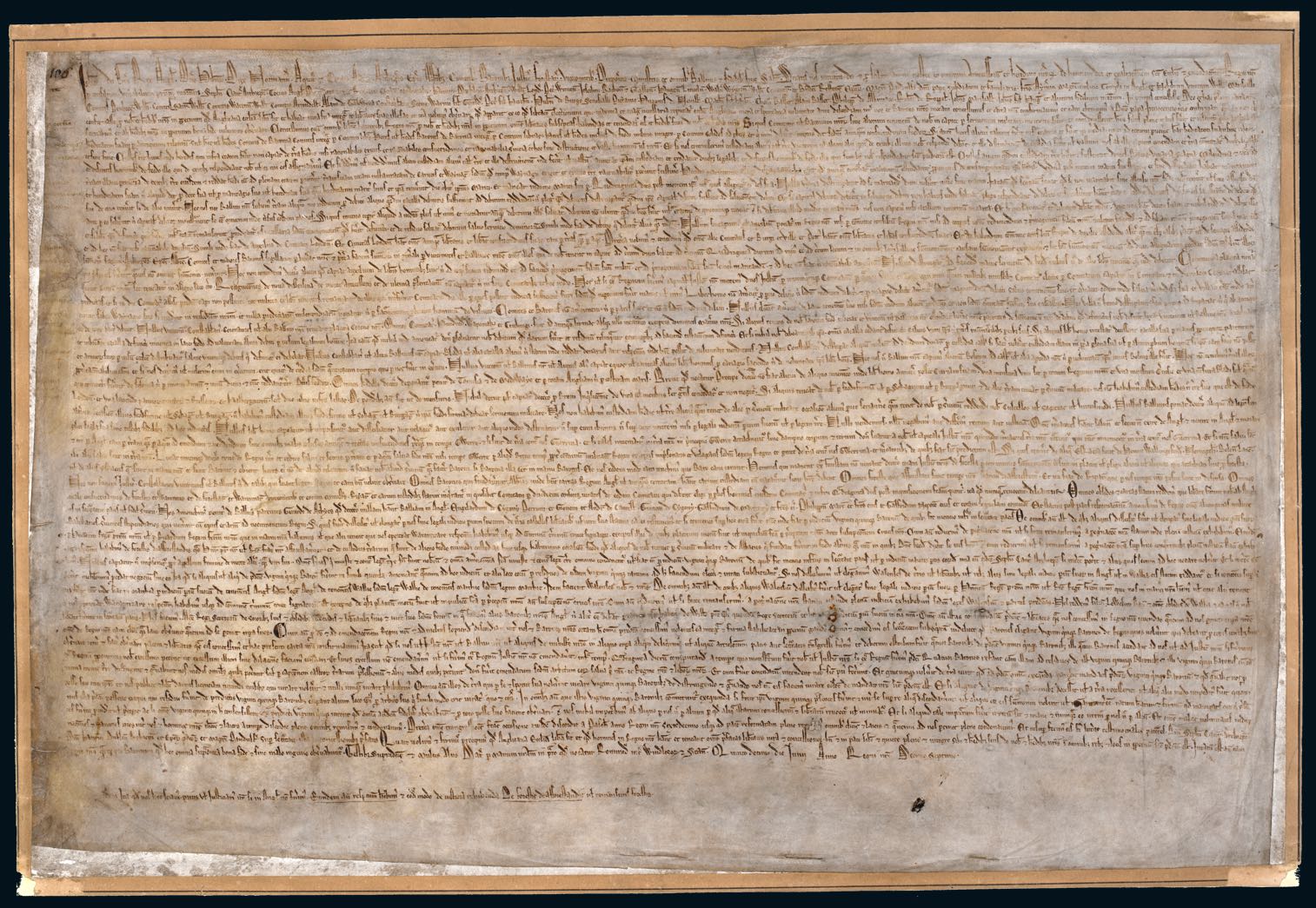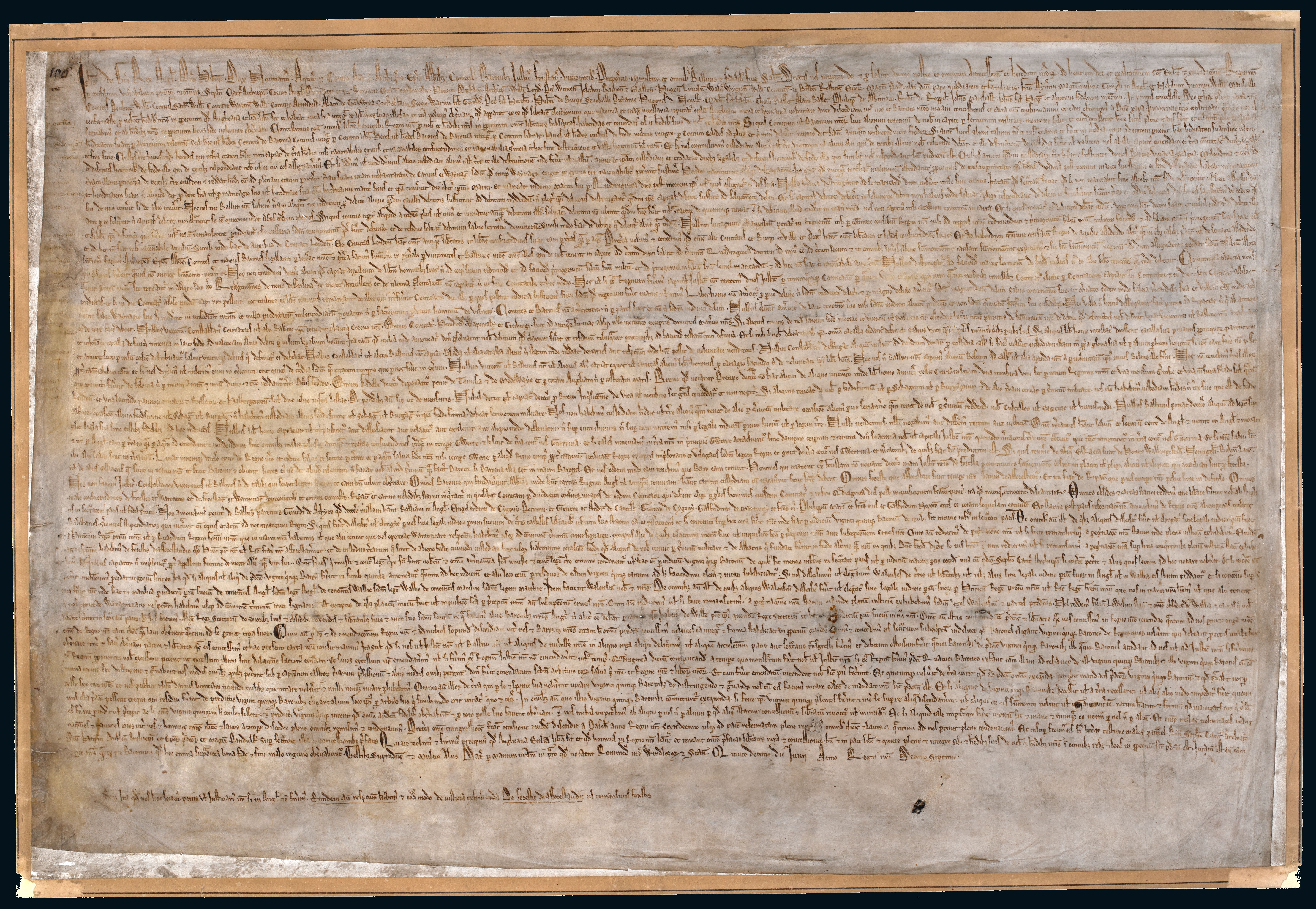
Si quis tenuerit de aliqua eskaeta sicut de Honore Walingefordie, Notingeham, Bolonie, Lancastrie, vel de aliis eskaetis que sunt in manu nostra et sunt baronie et obierit heres eius non det aliud relevium nec faciat nobis aliud servicium quam faceret baroni si baronia illa esset in manu baronis. Et nos eodem modo eam tenebimus quo Baro eam tenuit.
If a man holds lands of any 'escheat' such as the 'honour' of Wallingford, Nottingham, Boulogne, Lancaster, or of other 'escheats' in our hand that are baronies, at his death his heir shall give us only the 'relief' and service that he would have made to the baron, had the barony been in the baron's hand. We will hold the 'escheat' in the same manner as the baron held it.
